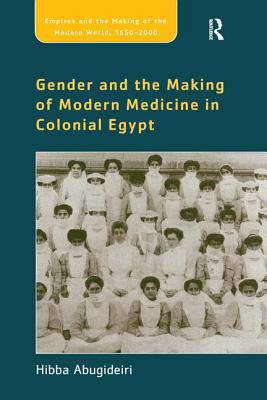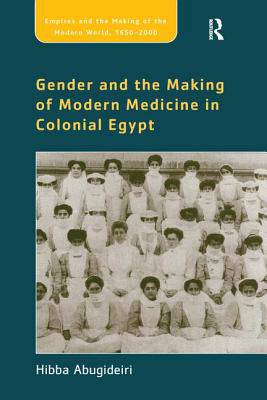
- Afhalen na 1 uur in een winkel met voorraad
- Gratis thuislevering in België vanaf € 30
- Ruim aanbod met 7 miljoen producten
- Afhalen na 1 uur in een winkel met voorraad
- Gratis thuislevering in België vanaf € 30
- Ruim aanbod met 7 miljoen producten
Zoeken
Gender and the Making of Modern Medicine in Colonial Egypt
Hibba Abugideiri
€ 77,45
+ 154 punten
Uitvoering
Omschrijving
Gender and the Making of Modern Medicine in Colonial Egypt investigates the use of medicine as a 'tool of empire' to serve the state building process in Egypt by the British colonial administration. It argues that the colonial state effectively transformed Egyptian medical practice and medical knowledge in ways that were decidedly gendered. On the one hand, women medical professionals who had once trained as 'doctresses' (hakimas) were now restricted in their medical training and therefore saw their social status decline despite colonial modernity's promise of progress. On the other hand, the introduction of colonial medicine gendered Egyptian medicine in ways that privileged men and masculinity. Far from being totalized colonial subjects, Egyptian doctors paradoxically reappropriated aspects of Victorian science to forge an anticolonial nationalist discourse premised on the Egyptian woman as mother of the nation. By relegating Egyptian women - whether as midwives or housewives - to maternal roles in the home, colonial medicine was determinative in diminishing what control women formerly exercised over their profession, homes and bodies through its medical dictates to care for others. By interrogating how colonial medicine was constituted, Hibba Abugideiri reveals how the rise of the modern state configured the social formation of native elites in ways directly tied to the formation of modern gender identities, and gender inequalities, in colonial Egypt.
Specificaties
Betrokkenen
- Auteur(s):
- Uitgeverij:
Inhoud
- Aantal bladzijden:
- 282
- Taal:
- Engels
- Reeks:
Eigenschappen
- Productcode (EAN):
- 9781138253162
- Verschijningsdatum:
- 9/09/2016
- Uitvoering:
- Paperback
- Formaat:
- Trade paperback (VS)
- Afmetingen:
- 156 mm x 233 mm
- Gewicht:
- 530 g

Alleen bij Standaard Boekhandel
+ 154 punten op je klantenkaart van Standaard Boekhandel
Beoordelingen
We publiceren alleen reviews die voldoen aan de voorwaarden voor reviews. Bekijk onze voorwaarden voor reviews.











